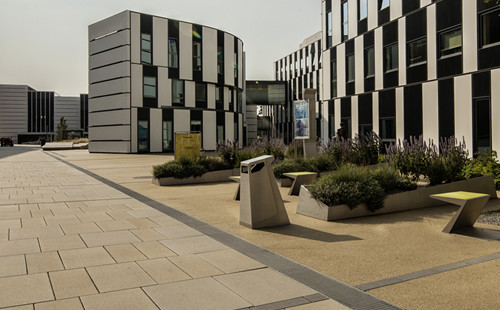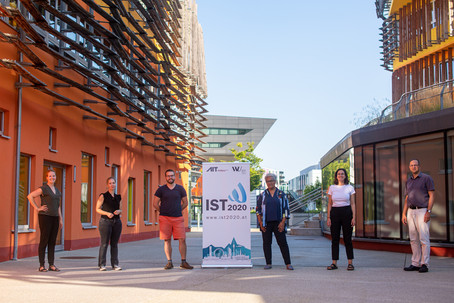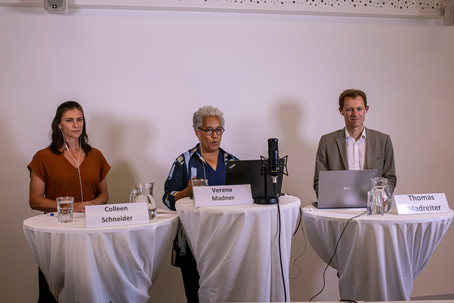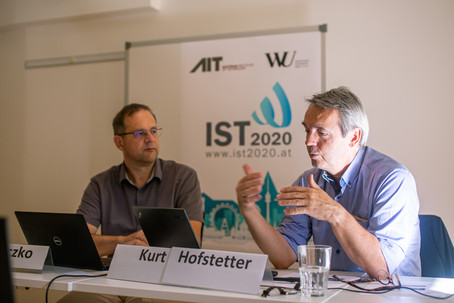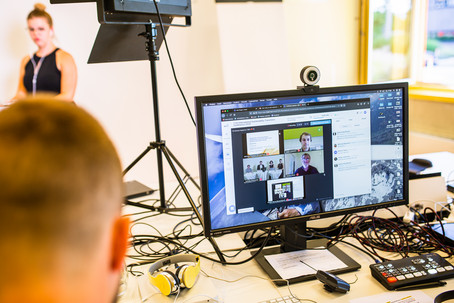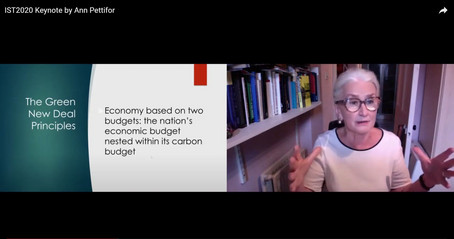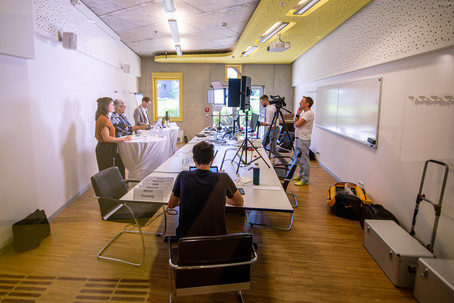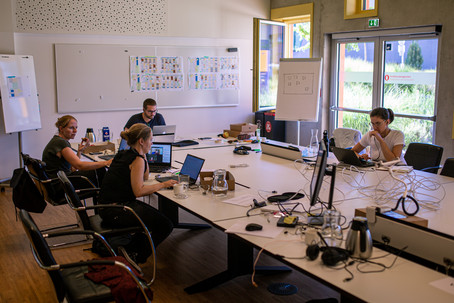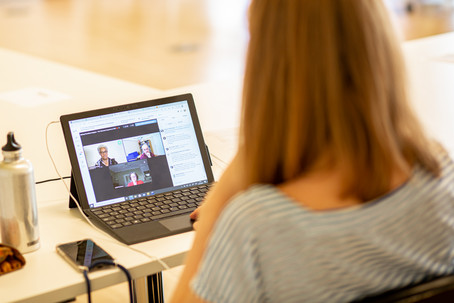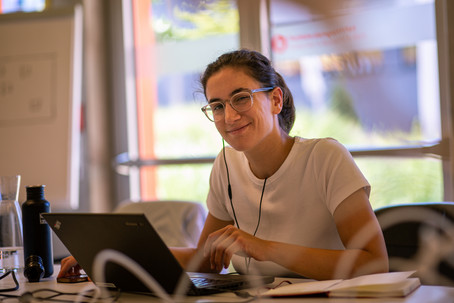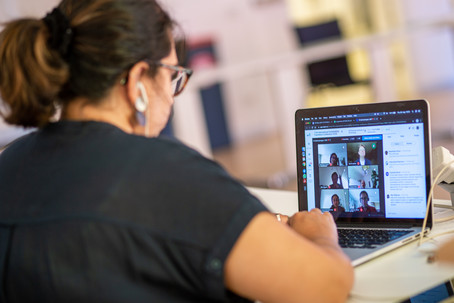IST2020 – Internationale Konferenz zu Sustainability Transitions an der WU
Vom 18. bis 21. August 2020 fand an der WU die von Prof. Verena Madner mitorganisierte 11. International Sustainability Transitions Conference (IST2020) als Online-Konferenz mit mehr als 680 internationalen Teilnehmerinnen und Teilnehmern statt.
Die IST2020-Konferenz zum Thema "Governance in an Era of Change - Making Sustainability Transitions Happen” wurde vom Forschungsinstitut für Urban Management und Governance, dem Institut für Recht und Governance und dem Austrian Institute of Technology (AIT) in Zusammenarbeit mit dem Sustainability Transitions Research Network (STRN) veranstaltet.
Ein ausführlicher Bericht zur IST2020 ist derzeit nur in englischer Sprache verfügbar.
Connecting international scholars, policymakers and local practitioners
The conference brought together scholars and policymakers from around the globe as well as Vienna’s local practitioners, allowing them to connect and advance research and practice on sustainability transitions. Exploring how systemic change can be brought about, the conference addressed current global policy challenges such as the climate crisis, urban mobility or sustainable food production, from a transdisciplinary perspective, including researchers from fields such as sociology, science and technology studies, economics, ecology or political science.
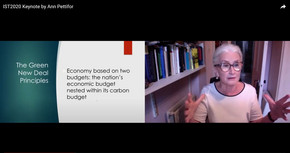
Three keynotes on how to advance sustainability transitions
The conference featured three distinguished keynotes. Ann Pettifor, a UK-based economist, author and self-described activist made the case for a Green New Deal. Koen Frenken, Professor in Innovation Studies at the Copernicus Institute for Sustainable Development at Utrecht University, discussed the rise of the platform economy. Karoline Rogge, Deputy Head of the Competence Centre “Policy and Society” at the Fraunhofer Institute for Systems and Innovation Research and Professor of Sustainability Innovation and Policy at the University of Sussex, presented transformative climate policy mixes for accelerating sustainability transitions in the energy sector. All three keynotes are available online and were documented via graphic facilitation by one of our conference ambassadors (read more about our 13 conference ambassadors and their reports from IST2020 here).
Making transitions happen in Vienna – first-hand insights from local practitioners
A newly designed feature of the IST2020 were two dialogue sessions labelled “Making Transitions Happen – the Viennese Experience”, providing insights into the experiences of high-level practitioners from the City of Vienna in governing sustainability transitions. These dialogue sessions enabled a vivid and fruitful exchange between international researchers and policymakers. In the first session, Thomas Madreiter, Director of Planning, City of Vienna, explained how the Smart City Vienna implements policies that foster social inclusion and a high quality of life while reducing GHG emissions, energy consumption and the city’s material footprint. The discussants were Verena Madner, WU professor and IST2020 conference co-chair, Judith Borsboom-van Beurden, an internationally renowned expert on Smart City implementations, Harald Rohracher, Professor at the Department for Technology and Social Change at the Linköping University, and Colleen Schneider, PhD candidate at the Institute for Ecological Economics at WU. The dialogue session explored Vienna’s experience in Smart City Governance relying on the realization of environmental and climate-related objectives by all departments of the city. In the second dialogue session, Kurt Hofstetter, urban planner and coordinator of the International Building Exhibition Vienna 2022 (IBA Vienna), presented innovations for the future of social housing. The discussants were IST2020 conference co-chair Klaus Kubeczko, Susanne Giesecke, Senior Scientist at the Austrian Institute for Technology, and Mark de Hoop, City of Amsterdam. A much-debated question was how neighborhoods can combine housing with spaces that meet other needs, respond to societal challenges and ensure high standards of living. Overall, the discussants emphasized the importance of civic participation in the planning process of new housing projects.
Four days, 400 individual contributions, 285 sessions
In total, 285 full paper, speed talk and dialogue sessions took place during this four-day event. More than 400 individual contributions were presented in nine different conference tracks, dedicated to, for example, governance in an era of change; theoretical contributions to transitions frameworks; power, agency and politics in transitions; organizations and industries in sustainability transitions; geography of transitions: spaces, scales, places; or ethical aspects of transitions: distribution, justice and poverty. IST2020 provided scholars, practitioners and policymakers from around the world with a forum to discuss the most effective and suitable multi-level and place-based actions, policies and governance approaches that will substantially boost sustainability transitions.
Connecting participants from around the globe
Despite IST2020 taking place as a fully digital event due to COVID-19, the Local Organizing Committee creatively provided participants with a number of social side-events. Activities aiming to connect participants included the very popular “Speed Dating” and a virtual tour through Vienna in which members of the IST2020-team presented their favorite spots in the city. In cooperation with the KHM – Kunsthistorisches Museum Wien, participants enjoyed screenings of the art performances of the recent production GANYMED. An inspiring and heart-warming contribution to IST2020 was made by the Kinderuni Vienna: The youngest researchers crafted and painted their vision of a sustainable city of the future. Their work was presented at the closing session of the conference and commented on by two of our keynote speakers, Karoline Rogge and Koen Frenken. Finally, the musician Chris Emray played a live guitar concert during which participants could make song requests and talk to each other in the chat room.
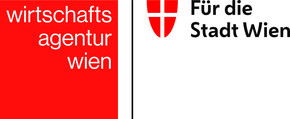
Gefördert durch die Wirtschaftsagentur Wien. Ein Fonds der Stadt Wien.
